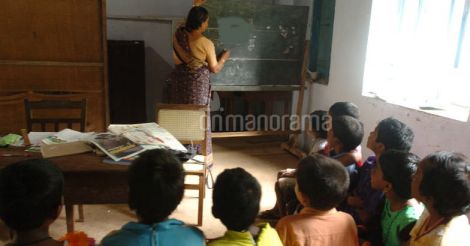The Education Minister of Kerala must have heaved a sigh of relief when the ceremonial announcement of this year’s SSLC results passed off without glitches and controversy. The icing on the cake was the announcement that there was no moderation this year and yet there was no significant dip in the pass percentage. The pass percentage this year was 96.59% as against 98.57% last year when there was moderation.
Over the years the peculiar egalitarian consensus of Kerala had prompted successive governments to increase the pass percentage by resorting to all possible means including the ironically named system of moderation. It had become almost impossible to fail unless one made a very deliberate effort for it! For the first time, however, there was some public criticism last year about the futility of such high pass percentages engineered for political reasons and the unemployability of this huge pool of educated illiterates.
Click here for CBSE class XII results 2017
Even this year, when the government said that there was no moderation it was only a half-truth because there is always a great deal of indirect moderation. For example, a student has to get 30 marks for a pass in English. On the other hand, 20 marks are earmarked for internal assessment and there are express instructions from the higher-ups in the education department that every student should be given full marks in the internal assessment.
This means that a student who gets just 10 marks will pass. Add to this the government instruction that marks should be awarded liberally in paper valuation. It is worth remembering that schools are discouraged from failing any student up to the tenth standard. The cumulative impact of all these “progressive” policies is that a very large number, if not a majority, of those who pass the Kerala SSLC examination know almost nothing about anything in any subject.
I happened to meet a teacher of an aided school on the day the SSLC results were published this year. She told me that one of their students who passed this time could not read or write. All the efforts of the teachers to make him at least recognize the alphabets had failed. He could not recognize even a simple letter like “H” and yet he had passed when the result came!
To my great curiosity, she explained how this was managed so that the school could maintain its record of 100% pass. Though this boy could not differentiate between H and G, he had a remarkable ability to copy almost anything. He, therefore, simply copied the answers from the answer sheet of the examinee sitting next to him.
This brings up another aspect of this collective fraud being played out in Kerala year after year – the role of the teachers, invigilators and management. It is well known that all those who can afford send their children to study in CBSE schools and consequently fresh admissions in the government and aided schools have been declining every year.
As per government orders, teachers are declared surplus when the student-teacher ratio falls below the prescribed level. Teachers, therefore, have a vested interest in ensuring that their school’s reputation for getting its students pass the SSLC examination is not compromised. The external invigilators face the same problem in their schools and are more than willing to play their part in the collective fraud. The private managements of these aided schools also have the responsibility to ensure that the teachers whom they appointed after taking huge bribes are not rendered jobless.
The abysmal academic standard is only one of the malaises bedeviling the school education system in Kerala. The total failure to pay any attention to character formation is equally important. The “progressive” reforms brought in by the modern education experts have made it impossible for teachers to discipline their errant students.
One teacher told me of an instance when a teacher who had seen a boy tripping girls passing by in the school verandah day after day, got so worked up that he slapped the boy one day. After this, all hell broke loose with the boy’s father filing a criminal case against the teacher and political activists threatening to destroy school property. The school management shifted him to another school but the repercussions continued to chase him. Finally, the teacher had to pay a large amount as compensation to the erring boy’s father and bribe police officers to settle matters.
I am not an advocate of corporal punishment in schools and do not justify the slapping by the teacher, but this incident also brought to light the attitude of the parents and the public towards student discipline and conduct as there was none to speak up for the scared girls or to condemn the boy’s action. They defended the boy’s misconduct saying “boys will be boys” and made light of the allegations.
Another teacher told me that most of the students in every class are good but one or two “heroes” are enough to lead many of them astray. Drug abuse and juvenile sex have become quite common now even in schools. Yet, in the prevailing scheme of things, nothing can be done to correct these mischief makers. Moreover, the race for preparing students for entrance examinations leaves little time to hold classes in moral science or to inculcate the right social values.
People who complain about the educated unemployment in Kerala conveniently forget that the unemployed are mostly unemployable and unwilling to take up any job that requires hard work. Unless our school education system is reformed, this will not change. The edifice of education in Kerala is wobbling like the proverbial house built on sand.
Many of the initiatives taken in the past in the education sector with good intentions have turned counterproductive. The situation has worsened and education has become the grazing ground of fortune seekers because the national party heading the state's coalition government has been mostly outsourcing the education department to one or the other of the regional parties.
Let us hope that the government that is elected now will give the highest priority to the education sector and assign the portfolio to a minister with vision and insight. It is not enough to invest public funds in the physical infrastructure of schools but efforts should be made to instill the right values in the children in their formative years. Unless we fix the school education before it is too late, the future of the state will be bleak. Unless the foundation is strong, the house will collapse like a pack of cards.

























 Representational image
Representational image